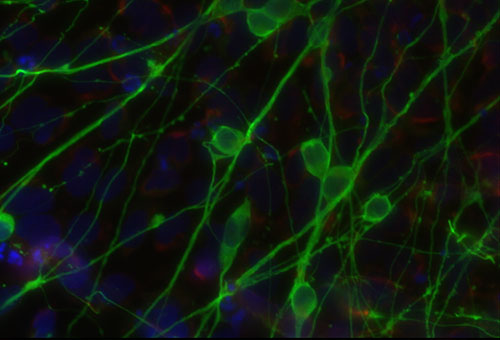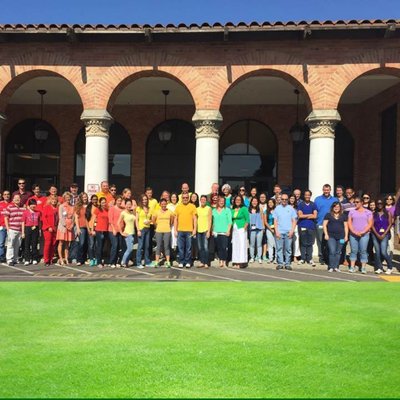Spina Bifida
 The UC Davis team is developing a placental stem cell therapy for spina bifida, the common and devastating birth defect that causes lifelong paralysis as well as bladder and bowel incontinence. With support from CIRM, they are investigating a unique treatment that can be applied in utero – before a baby is born – in order to reverse spinal cord damage. Their work requires additional testing for safety and efficacy, as well as FDA approval before the therapy can be used in humans. A pair of English bulldog puppies have already been successfully treated with a unique therapy — a combination of surgery and stem cells — developed at UC Davis to help preserve lower-limb function in children with spina bifida.
The UC Davis team is developing a placental stem cell therapy for spina bifida, the common and devastating birth defect that causes lifelong paralysis as well as bladder and bowel incontinence. With support from CIRM, they are investigating a unique treatment that can be applied in utero – before a baby is born – in order to reverse spinal cord damage. Their work requires additional testing for safety and efficacy, as well as FDA approval before the therapy can be used in humans. A pair of English bulldog puppies have already been successfully treated with a unique therapy — a combination of surgery and stem cells — developed at UC Davis to help preserve lower-limb function in children with spina bifida.
The head of the Spina Bifida team previously conducted a national trial to treat spina bifida in babies still in the womb and the new proposed therapy plans to add stem cells to the framework of that therapy.
In 2018, The California Institute for Regenerative Medicine (CIRM) awarded $5.66 million to this team to pursue a new approach to repairing the birth defect that causes spina bifida.

